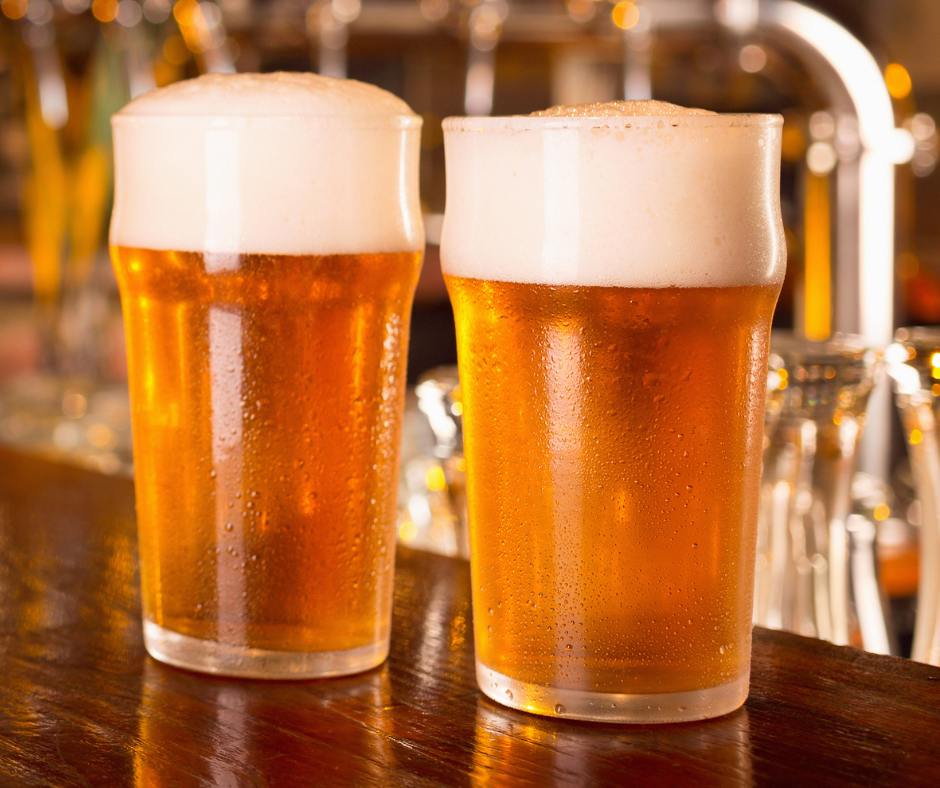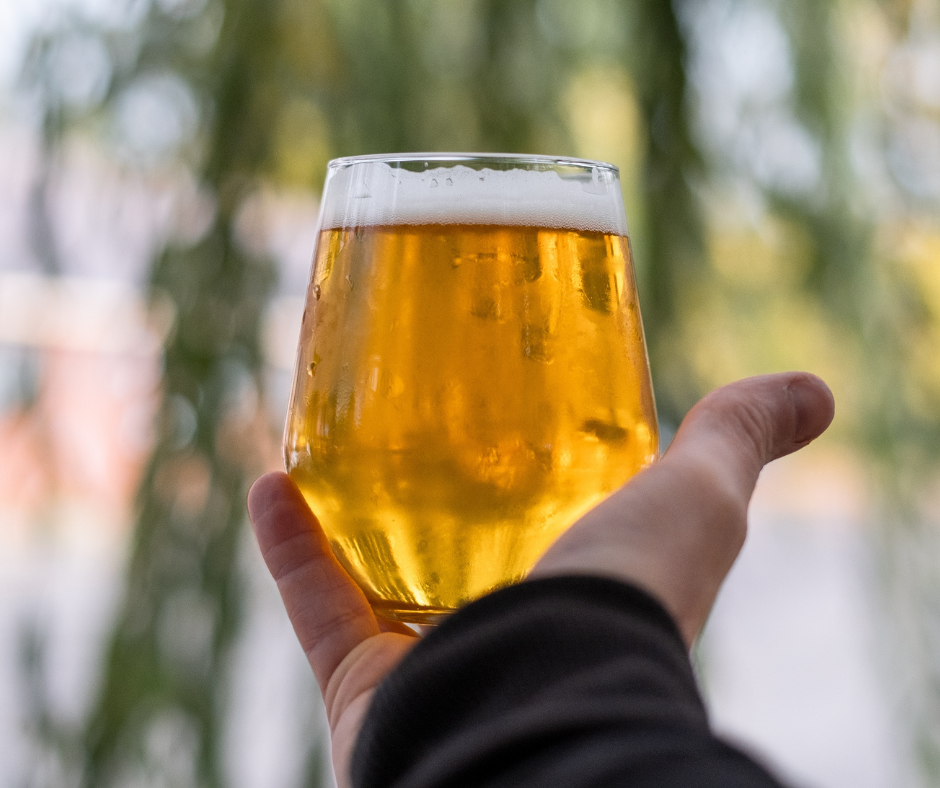Introduction To Beer From The Philippines
The Philippines may not be the first country that comes to mind when thinking about beer, but it has a vibrant and growing beer industry making its mark on the international stage. Known for its beautiful beaches and warm hospitality, the Philippines is also gaining recognition for its unique and diverse beer culture. This article will explore the rise of the craft beer industry and the popularity of Beer from the Philippines.

The Rise Of The Craft Beer Industry
In recent years, the craft beer scene in the Philippines has experienced significant growth and innovation. Craft breweries are popping up nationwide, offering various flavors and styles that cater to different tastes. These breweries are known for their small-batch production, attention to detail, and commitment to quality.
One of the reasons behind the rise of the craft beer industry in the Philippines is the growing demand for unique and flavorful beers. Beer enthusiasts are increasingly seeking something beyond the mainstream and are eager to explore new tastes and experiences. Craft breweries provide them with exactly that. They experiment with local ingredients, such as tropical fruits and traditional Filipino flavors, to create distinctly Filipino beers.
The craft beer movement in the Philippines also benefits from a supportive community of beer lovers and entrepreneurs. Craft beer festivals and events have become popular, allowing brewers to showcase their creations and for consumers to discover new and exciting brews. This sense of community fosters collaboration and encourages sharing knowledge and techniques, resulting in a flourishing craft beer scene.
The Popularity Of Local And Imported Beers
While craft beer is gaining momentum, it is important to note that the Philippines has a long-standing love affair with beer. Both local and imported beers have a loyal following among Filipinos.
San Miguel Brewery, the largest brewery in the Philippines, has been brewing beer since 1890 and holds a special place in the hearts of many Filipinos. San Miguel Pale Pilsen, their flagship brand, is a household name often associated with celebrations and gatherings. It is a light and refreshing lager that pairs well with Filipino cuisine.
Aside from San Miguel, other local breweries have recently gained popularity. These breweries produce a range of beers, from light lagers to robust stouts, catering to diverse tastes. Some notable local breweries include Pedro Brewcrafters, Alamat Craft Brew, and The Cebruery.
In addition to local beers, imported beers have also found a niche in the Philippines. Beers from top international breweries, such as Belgium, Germany, and the United States, are widely available in specialty bars and restaurants. These imported beers allow beer enthusiasts to explore different beer styles and flavors worldwide.
In conclusion, the beer scene in the Philippines is evolving and becoming more diverse. The rise of the craft beer industry has brought about a new wave of innovation and creativity, with local breweries pushing boundaries and experimenting with unique flavors. At the same time, traditional local and imported beers continue to hold a special place in the hearts of beer lovers in the country. Whether you are a craft beer enthusiast or enjoy the classics, exploring the beer from the Philippines is an experience worth sipping and savoring.
The History Of Beer from the Philippines
The Founding Of The First Brewery In Southeast Asia
In 1890, San Miguel Brewery was founded in the Philippines and became the first-ever brewery in Southeast Asia. The brewery was established by Don Enrique Maria Barretto de Ycaza y Esteban, a Spanish businessman who saw the potential in introducing beer to the Philippines. At that time, beer was predominantly imported from Europe and was considered a luxury item. Barretto’s vision was to create a local beer catering to Filipino tastes and lifestyles.
The introduction of the brewery marked a significant milestone in the history of beer in the Philippines. San Miguel’s flagship brand, San Miguel Pale Pilsen, quickly gained popularity and became a household name. The beer’s crisp and refreshing taste resonated with the Filipino palate, making it a favorite choice for gatherings, celebrations, and everyday enjoyment.
Barretto And The Introduction Of Manila Pale Ale
In addition to San Miguel Pale Pilsen, Don Enrique Maria Barretto de Ycaza y Esteban it also introduced Manila Pale Ale to the Philippines. This beer was a unique creation that blended the flavors of East and West. It was brewed using local ingredients, such as rice and corn, and imported hops and malt from Europe.
Manila Pale Ale became a hit among beer enthusiasts, offering a distinct taste different from the traditional European beers. It showcased the brewing prowess of the Philippines and demonstrated the country’s ability to create innovative and flavorful beers.
Over the years, San Miguel Brewery expanded its portfolio, introducing new beer styles and flavors to cater to changing consumer preferences. Today, the brewery offers a wide range of beers, from light and crisp lagers to hoppy IPAs and smooth stouts, ensuring something for every beer lover.
The success of San Miguel Brewery paved the way for the beer industry’s growth in the Philippines. Inspired by its success, other local breweries started emerging, each with unique offerings and flavors.

The Craft Beer Revolution In The Philippines
In recent years, the craft beer scene in the Philippines has experienced a revolution. Both big and small craft breweries have emerged, offering many flavors and styles that cater to diverse tastes.
Craft brewers in the Philippines are known for their commitment to quality and attention to detail. They experiment with local ingredients, such as tropical fruits, spices, and traditional Filipino flavors, to create distinctly Filipino beers. These unique flavors have captured the attention of beer enthusiasts who are seeking something beyond the mainstream.
The rise of the craft beer industry can be attributed to the growing demand for unique and flavorful beers. Beer enthusiasts in the Philippines increasingly seek variety and are eager to explore new tastes and experiences. Craft breweries provide them with a platform to do just that, offering a wide range of beers that showcase the country’s rich and diverse cultural heritage.
Apart from the quality and innovation in flavors, the craft beer movement in the Philippines benefits from a supportive community of beer lovers and entrepreneurs. Craft beer festivals and events have become popular, allowing brewers to showcase their creations and for consumers to discover new and exciting brews. This sense of community fosters collaboration and encourages sharing knowledge and techniques, resulting in a flourishing craft beer scene.
Local And Imported Beers: A Shared Love For Beer In The Philippines
While the craft beer industry is gaining momentum, it is important to note that both local and imported beers continue to hold a special place in the hearts of beer lovers in the Philippines.
With its iconic brands like San Miguel Pale Pilsen and Manila Pale Ale, San Miguel Brewery remains a beloved choice among Filipinos. These beers evoke a sense of nostalgia and are often associated with gatherings, celebrations, and moments of relaxation.
In addition to San Miguel, several other local breweries have recently gained popularity. Pedro Brewcrafters, Alamat Craft Brew, and The Cebruery are just a few examples of local breweries that have successfully carved their niche in the market. These breweries produce a range of beers, from traditional and easy-drinking lagers to bold and experimental brews catering to diverse tastes.
Alongside the local beer scene, imported beers have also found a niche in the Philippines. Beers from top international breweries, such as Belgium, Germany, and the United States, are widely available in specialty bars and restaurants. These beers allow beer enthusiasts to explore different beer styles and flavors worldwide.
In conclusion, the beer industry in the Philippines is evolving and becoming more diverse. The rich history of beer, starting with the founding of San Miguel Brewery, has paved the way for the craft beer revolution in the country. Craft breweries are pushing boundaries, creating unique flavors that celebrate the essence of the Philippines. At the same time, traditional local and imported beers continue to be cherished by beer lovers who appreciate the classics. Whether you are a craft beer enthusiast or someone who enjoys a cold bottle of San Miguel Pale Pilsen, exploring the beer from the Philippines is an experience worth sipping and savoring.
Elias Wicked Ales & Spirits: Champion Brewery Of Asia
The Success Of Summer Breeze Saison
Based in the Philippines, Elias Wicked Ales & Spirits has been making waves in the craft beer scene with their award-winning brew, Summer Breeze Saison. This refreshing and vibrant beer showcases the brewery’s commitment to creating innovative and high-quality brews that cater to the diverse tastes of beer enthusiasts.
Summer Breeze Saison has garnered local and international attention, earning the Champion Brewery of Asia title in the 2020 Asian Beer Championship. This recognition speaks volumes about the craftsmanship and dedication of the Elias Wicked Ales & Spirits team.
The success of Summer Breeze Saison can be attributed to its unique flavor profile and meticulous brewing process. This beer captures the essence of the Philippines with its tropical fruit notes and hints of spice, making it a perfect choice for those looking to explore new and exciting flavors. It exemplifies the craftsmanship and attention to detail that sets Elias Wicked Ales & Spirits apart from other regional breweries.
Elias Wicked Ales & Spirits’ Commitment To Quality And Innovation
A relentless commitment to quality and innovation drives Elias Wicked Ales & Spirits. They continually push the boundaries of traditional brewing techniques, experimenting with local ingredients and flavors to create distinctly Filipino beers.
One of the ways Elias Wicked Ales & Spirits showcases their commitment to quality is through their meticulous brewing process. They source the finest ingredients, ensuring each brew is made with the highest standards. This attention to detail results in consistently exceptional beers in flavor and aroma.
Innovation is at the core of Elias Wicked Ales & Spirits’ ethos. They are constantly exploring new flavors, experimenting with unique ingredients, and pushing the limits of traditional beer styles. This commitment to innovation has resulted in diverse brews catering to a wide range of palates, from easy-drinking lagers to bold and experimental ales.
Elias Wicked Ales & Spirits also take pride in their sustainable and environmentally friendly practices. They strive to minimize their ecological footprint by implementing energy-efficient processes and utilizing local ingredients that are grown sustainably. By prioritizing sustainability, they ensure that their beers are delicious and contribute to a healthier planet.
With a dedication to quality, innovation, and sustainability, Elias Wicked Ales & Spirits has become a leading force in the Philippine craft beer scene. Their brews continue to captivate beer enthusiasts and redefine what it means to enjoy a truly world-class beer.
In conclusion, Elias Wicked Ales & Spirits is a trailblazer in the craft beer industry in the Philippines. Their award-winning brew, Summer Breeze Saison, exemplifies their commitment to quality and innovation. With a focus on creating unique flavors that celebrate the essence of the Philippines, Elias Wicked Ales & Spirits has established itself as a champion brewery in Asia. Whether you’re a craft beer enthusiast or someone looking to explore new and exciting flavors, their brews are sure to delight your taste buds and leave you craving more.

The Growth Of The Craft Beer Industry In The Philippines
The craft beer industry in the Philippines has experienced tremendous growth and is quickly gaining local and international recognition. As more Filipinos develop a taste for unique and flavor-packed brews, the industry is evolving to meet the demands of a growing market. In this article, we will explore the challenges and opportunities faced by the craft beer industry in the Philippines and how brewers cater to the Filipino taste palate.
Challenges And Opportunities
Like any growing industry, the craft beer scene in the Philippines has encountered its fair share of challenges. One of the main obstacles brewers face is the dominance of mass-produced beer brands that have long been the go-to choice for Filipinos. However, this challenge has also opened up opportunities for craft brewers to differentiate themselves by offering various innovative and unique brews.
Another challenge is Filipino consumers’ lack of awareness and education about craft beer. Many people are unfamiliar with the concept of craft beer and the different styles and flavors it offers. To tackle this, brewers have been actively organizing beer tastings, festivals, and events to educate consumers about the craft beer culture and help them develop a deeper appreciation for the art of brewing.
Additionally, the craft beer industry in the Philippines has benefited from the growing trend of supporting local businesses. Filipinos are increasingly embracing the idea of supporting local products and entrepreneurs, and this shift in mindset has provided a platform for craft beer brewers to thrive. By showcasing locally sourced ingredients and incorporating Filipino flavors, craft brewers are capturing the interest and loyalty of consumers who appreciate the unique cultural identity of their brews.
Catering To The Filipino Taste Palate
Craft brewers in the Philippines recognize the importance of catering to the Filipino taste palate to win over consumers. While some breweries stay true to traditional beer styles, others experiment with local ingredients and flavors to create distinctly Filipino brews.
The use of tropical fruits is a common theme in many craft beers from the Philippines. Mango, pineapple, calamansi (a local citrus fruit), and even coconut are often incorporated into recipes to add a refreshing and distinctly tropical twist. These fruity flavors resonate well with the Filipino palate, which appreciates vibrant and tropical flavors in food and beverages.
In addition to fruits, craft brewers are also exploring traditional Filipino ingredients such as pandan, lemongrass, and even chili peppers to infuse their brews with unique local flavors. These unconventional ingredients add complexity and character to the beers, giving them a distinct taste that differentiates them from traditional beer styles.
Furthermore, craft brewers in the Philippines are increasingly experimenting with barrel aging and sour beer production. Barrel-aged beers, where the beer is aged in barrels previously used for spirits like whiskey or rum, develop a unique flavor profile that appeals to those looking for something more adventurous. Sour beer, tangy and acidic, they offer a refreshing alternative to traditional beer styles and are gaining popularity among Filipino beer enthusiasts.
In conclusion, the craft beer industry in the Philippines is experiencing remarkable growth driven by challenges and opportunities. Craft brewers are successfully carving out a niche in the market by offering unique and flavorful brews that cater to the Filipino taste palate. With a focus on incorporating local ingredients and pushing the boundaries of traditional beer styles, the craft beer scene in the Philippines is poised to continue its upward trajectory. Whether you’re a craft beer enthusiast or looking to explore new and exciting flavors, be sure to sip through the diverse and captivating world of beer from the Philippines.
Conclusion
Now you know about the Beer from the Philippines. The craft beer industry in the Philippines has truly become its own, experiencing significant growth and gaining local and international recognition. Despite facing challenges such as the dominance of mass-produced beer brands and a lack of awareness and education about craft beer among Filipino consumers, the industry has found opportunities to differentiate itself and cater to the unique taste palate of Filipinos.
By offering a wide range of innovative and flavor-packed brews, craft brewers in the Philippines have captured the interest and loyalty of consumers who appreciate the artistry and distinctiveness of their beers. These brewers have also taken advantage of the growing trend of supporting local businesses, showcasing locally sourced ingredients, and incorporating Filipino flavors to create brews with a unique cultural identity.
Moving forward, the future of beer from the Philippines looks promising. With the continuous growth of the craft beer scene, more and more Filipinos are developing a taste for unique and flavorful brews. This shift in consumer preferences provides opportunities for brewers to further experiment with local ingredients, styles, and flavors, pushing the boundaries of traditional beer and offering exciting new options to beer enthusiasts.
The Future Of Beer From The Philippines
As the craft beer industry in the Philippines continues to evolve, it is expected to contribute significantly to its economy. The growing demand for unique and localized brews presents opportunities for small, independent brewers to thrive and contribute to the local job market. This industry fosters innovation and creativity, encouraging brewers to experiment with new ingredients and techniques.
Furthermore, the increasing interest in craft beer among younger Filipinos suggests that the industry has a bright future. Millennials and Gen Z consumers, in particular, are more adventurous and open to new flavors and experiences. With their support, the craft beer industry in the Philippines can continue to grow and expand, enriching the local beer culture and attracting beer enthusiasts worldwide.
Exploring And Tasting Different Filipino Craft Beers
One of the exciting aspects of the craft beer scene in the Philippines is the diverse range of brews available for beer enthusiasts to explore and taste. Each brewery brings unique flavor profiles, ingredients, and brewing methods, creating various options for beer lovers.
When exploring Filipino craft beers, it is worth trying brews incorporating tropical fruits such as mango, pineapple, and calamansi. These fruity flavors add a refreshing and distinctly Filipino twist to the beers. Additionally, brews infused with traditional Filipino ingredients such as pandan and lemongrass offer a taste journey that combines the familiar with the unique.
For those looking for more adventurous flavors, barrel-aged and sour beers are worth exploring. Barrel-aged beers, with their unique flavor profiles developed from aging in barrels previously used for spirits like whiskey or rum, offer a more complex and rich experience. On the other hand, sour beers provide a tangy and acidic taste that offers something different from traditional beer styles.
To fully appreciate the craft beer scene in the Philippines, attending beer tastings, festivals, and events organized by breweries can provide a comprehensive and immersive experience. These gatherings not only allow you to taste a wide range of brews but also provide an opportunity to engage with brewers, learn about their craft, and discover the stories behind each brew.
In conclusion, sipping your way through the diverse and captivating world of beer from the Philippines is a delightful experience. With its growing industry, emphasis on using local ingredients and flavors, and commitment to innovation, the craft beer scene in the Philippines offers beer enthusiasts a unique and exciting journey. So whether you’re a seasoned craft beer connoisseur or someone exploring new flavors, be sure to raise a glass and indulge in the flavors of the Philippines.
FAQ: Beer from the Philippines – Sipping Southeast Asia: Exploring Beer from the Philippines
Q: What is the significance of beer in Filipino culture?
A: Beer is a strong presence in Filipino culture, influenced by San Miguel Corporation, a renowned brewery founded in the 1800s that has expanded to become one of the country’s major food conglomerates. With this influence, beer has gained a significant market share in the Philippines.
Q: Are there flavored beers available in the Philippines?
A: Yes, the Philippines offers a diverse range of flavored beers. These beers provide various options to suit different palates, from fruits to spices and herbs.
Q: What is the advantage of trying flavored beers?
A: Flavored beers provide an alternative drinking experience for individuals who may not enjoy the distinct hop bitterness in regular beers. Flavored beers offer a lighter and more refreshing taste by incorporating sweetness and additional flavors.
Q: Which flavored beers are recommended for beginners?
A: Beginners may find sweet fruit-flavored beers a good starting point. These beers provide a familiar taste while offering a refreshing twist. They come in various unique and exciting brews.
Q: Can you recommend the best-flavored Beer from the Philippines?
A: Certainly! Here are the top 10 flavored beers in the Philippines for 2023, reviewed by a craft beer brewer:
- Katipunan Craft Ales
- Nipa Brew
- Gresh Brew
- Three Foxes Brewery
- Matimyas
Q: How can I discover my preferred flavors in beers?
A: Experimentation is key to finding the flavors that resonate with you. While some may enjoy the familiar bitter and tart kick of beer, others prefer to explore different flavors. The most popular flavors among Filipinos include fruit-infused ones such as apple, lemon, lychee, and more, known for their light and refreshing nature.
Q: Are there locally inspired flavors in Philippine craft breweries?
A: Many local craft brewers in the Philippines infuse their beers with indigenous flavors. They often incorporate local fruits like pomelo, mango, and calamansi, creating unique brews that celebrate Filipino taste preferences. This adds a distinct touch to the brewing landscape amidst the influence of commercial giants.

Andre Lotz immigrated to the United States from South Africa almost 20 years ago. Still, he didn’t feel truly at home until he settled in Mobile—a city that reminds him of his childhood home of Fish Hoek on the southern cape of Africa.

